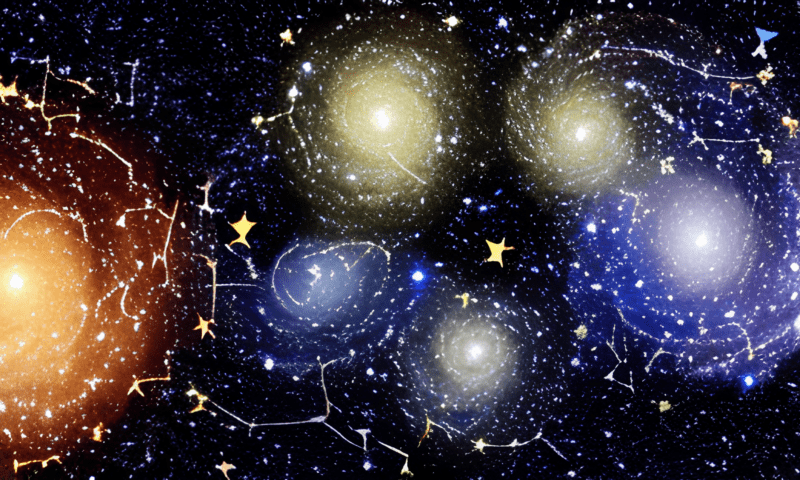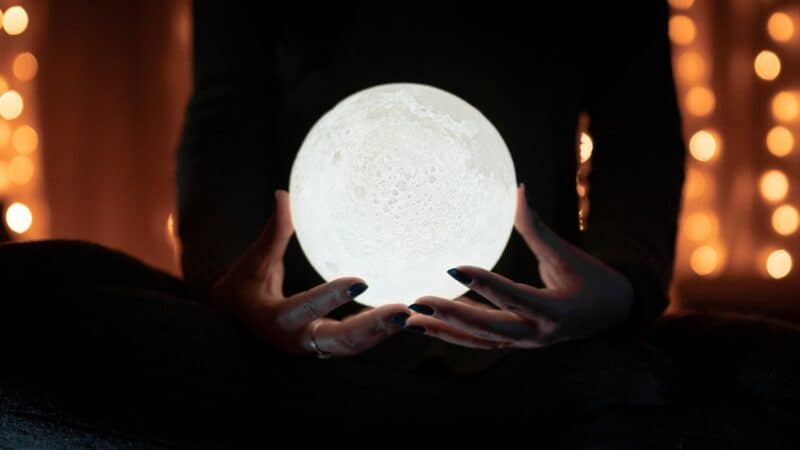Astrology is a branch of science that hypothesizes and attempts to explain how celestial bodies influence human affairs. According to the American Heritage Dictionary, astrology is the study of the positions and angles of celestial bodies in order to predict how things will go in the natural world and in the lives of people. Astrology is a form of divination that is based on the belief that by looking at heavenly bodies like stars, planets, the moon, comets, etc., one can learn information about the future or about one’s personality. Astrology was used frequently in antiquity as well. Some of the most illustrious civilizations in history used this field extensively. For instance, astrology was used at some point in the history of the ancient Chinese, Egyptian, Indian, and other civilizations. Before the rise of Islam, Arabs also practiced astrology. The earliest known users of astrology were likely the ancient Babylonians. Following that, this technology was used in countries such as China and India. The first person to ever publish a book on astrology was the Greek astronomer Ptolemy. He established the rules for today’s sun sign astrology. Ptolemy tried to predict where the earth and other planets would be in the sky by looking at how they moved in their orbits. Astrology was a branch of astronomy at the time. Astronomy later developed into an accurate science, whereas astrology remained a branch of theology. Astrology is built on the observation of planets.
Astrology has a long history that dates back to the beginning of the human race and is a significant component of civilization. Baghdad and Damascus were seen as centers of astrology and astronomy, as well as places where people learned about medicine. Before the arrival of Islam, Arabs were the forerunners in astronomy. The Babylonians first gave the Sun, Moon, and planets names for the days of the week. They also established the first twelve houses of the horoscope. One of the key locations in the growth of astrology was Egypt. Some of the zodiac signs are said to have their roots in Egypt.
Even throughout the Vedic era, astrology was used in India. One of the six Vedanga sciences is astrology. Hindus hold that karma, which they think is influenced by the motions of the planets, is responsible for human fortune or misfortune in life. Brahmins are regarded as the foremost astrology experts among Hindus. Astrology is used a lot in modern India to look into the future and make life better. Many people in India study and use astrology. In Indian culture, it is valued as being essential. It is employed when deciding whether to get married, launch a new business, move into a new home, etc. The different facets of planetary motions and their effects on humanity are given considerable weight in the ancient Hindu Scriptures as well.
The five elements of Chinese astrology—metal, wood, water, fire, and earth—are emphasized. Even the zodiac signs they use are different from what other types of astrology use. China was cut off from the rest of the world for a long time. Because of this, Westerners were unaware of Chinese astrology. Since Chinese astrology developed on its own, it is very different from western ideas about astrology. However, there were occasional communications between the Chinese and Indian astrologers. Thus, there are certain similarities between these two institutions. Even though the West and China are very different places, their views on astrology have some surprising similarities. It is nothing more than a coincidence. Even though astrology was first studied and developed in the east, it has always been a part of western culture.
Horoscope reading has recently gained popularity in the West. Western culture has recently become aware of the potential of using astrology to predict the future and influence it for the better. Westerners are becoming more inclined to think that powerful planets and stars could have an impact on us. Western academics have studied the subject of astrology. The manner in which astrology has been examined and studied over the past few years is unprecedented. The Indian astrologers assert that their technique is a scientific one for making future predictions. They continue to categorize this subject matter as belonging to Hinduism. They assert that they can demonstrate the accuracy of astrological forecasts. Astrology is almost universally accepted among Hindus. Hindus who practice religion can’t even envision life without astrology. More and more Indians are beginning to construct their homes using Vastu Shashtra concepts. Astrological implications also play a role in this old Indian custom. Hindus hold that the adoption of Vastu principles when building a home has an impact on the inhabitants’ general prosperity and well-being. Feng shui is an ancient Chinese art of positioning and arranging objects and spaces to create harmony with their surroundings. It is a branch of Chinese astrology as well. Again, it is claimed that this is of a scientific nature.





